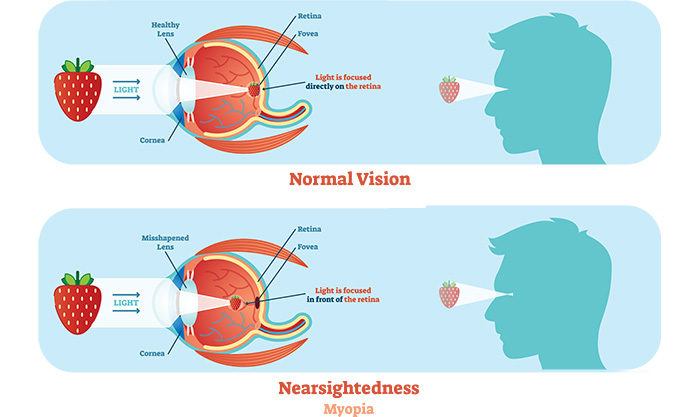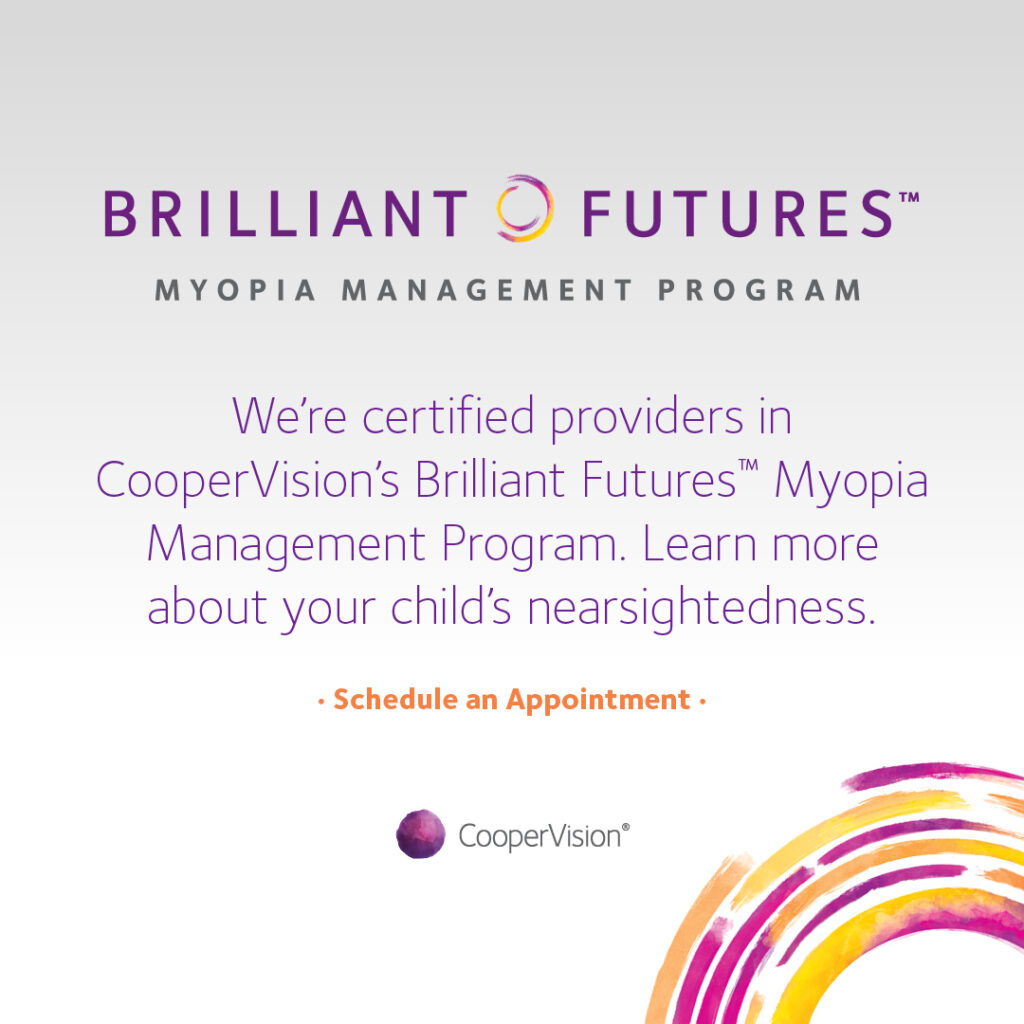Myopia
Myopia is more commonly known as nearsightedness or shortsightedness. It refers to vision that is good at close range but not at a distance. It generally occurs because the eyeball is too “long” as measured from front to back, and it affects 42% of people ages 12-54 in the United States. Myopia may lead to serious short and long term complications including an impaired ability to learn, glaucoma, premature cataracts, and a detached retina.
Myopia Control Methods
Myopia Control are methods used to slow the progression of myopia. These methods are backed by scientific research in order to proactively slow down or stop the progression of myopia (or nearsightedness). The earlier the problem is identified and treatment initiated, the better the long term results are likely to be.
The main treatment methods are:
- Atropine Drops: prescription eye drops that are given once a day
- Orthokeratology (Ortho-K): hard contact lenses that reshape your cornea overnight; no need for glasses or contacts during the daytime. For more information, visit their website!
- Mi-Sight Soft Contact lenses: FDA approved day time lenses for children from the age of 8-12 years old that helps improve Myopia and even improves eyesight!
How EyeGen Vision Center Can Help You and Your Family?
Because Myopia progression is increasingly high in children, we’re the place to come to help improve and heal your children’s needs:
In order to find out which treatment is right for you or your child, please give us a call or text us at (714) 841-9888 to make an appointment!
Eyes Wide Open: Discover & Explore the Wonders of Vision
This two-sided 8.5″ x 11″ activity sheet is ideal for classrooms or as a giveaway at health fairs and community events, particularly for children ages 6-10 (early readers). Discover cool facts about vision and enjoy solving exciting puzzles!
Be Wise About Your Eyes_Activity Pages

